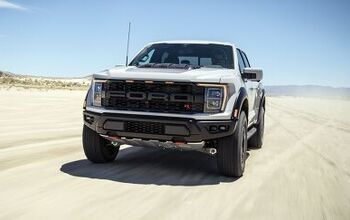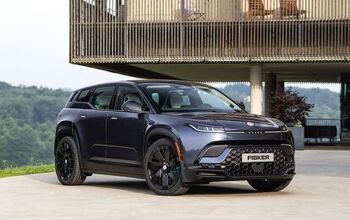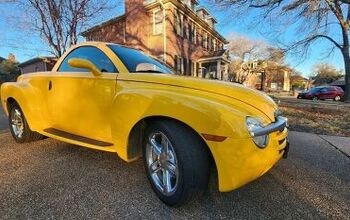2019 Lexus ES 300h Ultra Luxury Review - Attempting to Make a Statement

2019 Lexus ES 300h
Automotive journalists have long labeled the Lexus ES, and especially the hybrid version, as “boring.”
Count me among that number.
To its credit, Lexus has worked to remedy that reputation. The current-gen ES is still no sex machine or thrilling sports ride, but it’s more engaging than before without sacrificing the isolating comfort Lexus is known for. A new F Sport model does provide a bit more pizzazz, but even the fuel-saving hybrid is less of a snooze-fest than before.
I got my hands on one in North Carolina earlier this year, just to get a sense of how much less yawn-inducing it is than before.
(Full disclosure: Sometimes a press loan can be arranged while traveling. Other than the loan itself, I received no special consideration from Lexus, and I paid for gas, parking, and car wash out of pocket. The press fleet did pick up the minimal toll charges.)
It starts with the styling. Love or hate the “spindle” grille Lexus is so fond of these days, at least the brand is trying to make a statement. Personally, my feelings toward this particular front end vary based on application, and it doesn’t work quite as well here as it does on other products in the lineup, such as the larger LS. The longish hood and short deck lead to a slightly out-of-proportion look.
Still, at least the new ES won’t get lost in the Eddie Bauer parking lot quite as easily.
Inside, the story is similar. It seems Lexus is taking a love-it-or-leave it tack these days. I found the sloping lines to work well, but the button layout is haphazard, the touchpad controller for the infotainment takes some getting used to, and the infotainment system itself feels a bit like an afterthought, tacked atop the dash as it is. Control stalks sprouting like wings from the instrument cluster are just as weird in this Lexus as they are in other products bearing the brand’s name.
Weird looks are one thing, how a car drives is another. And while previous ES’s suffered in this department, the newest iteration is an improvement, even in hybrid guise.
Sure, it’s no sport sedan. Put it in the sportiest drive mode, and it’s somewhat engaging when attacking an on-ramp, but fun-to-drive is low on the priority list. To Lexus’ credit, the ES hybrid’s steering system does feel connected to the road and well-weighted – the disconnected steering feel of previous-gen cars is long gone.
Sports sedan it may not be, but the ES serves much better as serene-yet-not-soft interstate cruiser.
Mating a 2.5-liter four-cylinder with an electric motor for 215 system horsepower (176 from the gas engine, 39 from the motor) and 163 lb-ft of torque, the ES is no rocket, but the car accelerates adequately despite the relatively low torque figure.
As is the usual case with Lexus, the in-cabin materials mostly feel appropriately upscale for the price point and the seats were nice and comfortable for longer stints.
Hybrid buyers are usually shopping on fuel economy, of course, and the 2019 Lexus ES 350h checks in at 43 mpg city/45 mpg highway/44 mpg combined.
Luxury brands like Lexus promise plenty of standard features, and the ES 350h doesn’t disappoint. Dual-zone climate control, push button start, rear spoiler, moonroof, infotainment system, heated and cooled seats, hands-free trunk, and power rear sunshade are standard.
Options included blind-spot monitoring with cross-traffic alert, parking assist, 360-degree camera, rear pedestrian detection, navigation, Apple CarPlay, wireless cell-phone charge, premium audio, and heated steering wheel. All told, the sticker came to $54,405, including the $1,025 destination charge.
Lexus’ styling statement may fall a bit short for most, but the ES hybrid remains a solid sedan, and it has shed its boring roots. It’s no laugh riot, but it’s no snoozefest, either.
Executive transport for the middle manager is just fine when it’s smooth and stately. Those words fit the bill nicely when describing the ES.
[Images © 2019 Tim Healey/TTAC]

Tim Healey grew up around the auto-parts business and has always had a love for cars — his parents joke his first word was “‘Vette”. Despite this, he wanted to pursue a career in sports writing but he ended up falling semi-accidentally into the automotive-journalism industry, first at Consumer Guide Automotive and later at Web2Carz.com. He also worked as an industry analyst at Mintel Group and freelanced for About.com, CarFax, Vehix.com, High Gear Media, Torque News, FutureCar.com, Cars.com, among others, and of course Vertical Scope sites such as AutoGuide.com, Off-Road.com, and HybridCars.com. He’s an urbanite and as such, doesn’t need a daily driver, but if he had one, it would be compact, sporty, and have a manual transmission.
More by Tim Healey
Latest Car Reviews
Read moreLatest Product Reviews
Read moreRecent Comments
- Stephen Never had such a problem with my Toyota products.
- Vulpine My first pickup truck was a Mitsubishi Sport... able to out-accelerate the French Fuego turbo by Renault at the time. I really liked the brand back then because they built a model for every type of driver, including the rather famous 300/3000GT AWD sports car (a car I really wanted, but couldn't afford.)
- Vulpine A sedan version of either car makes it no longer that car. We've already seen this with the Mustang Mach-E and almost nobody acknowledges it as a Mustang.
- Vulpine Not just Chevy, but GM has been shooting itself in the foot for the last three decades. They've already had to be rescued once in that period, and if they keep going as they are, they will need another rescue... assuming the US govt. will willing to lose more money on them.
- W Conrad Sedans have been fine for me, but I were getting a new car, it would be an SUV. Not only because less sedans available, but I can't see around them in my sedan!





































Comments
Join the conversation
Same old ugly, boring, fancy Camry it has ever been.
I think the infotainment integration is fine. Those ugly troll horns above the cluster look horrible though.